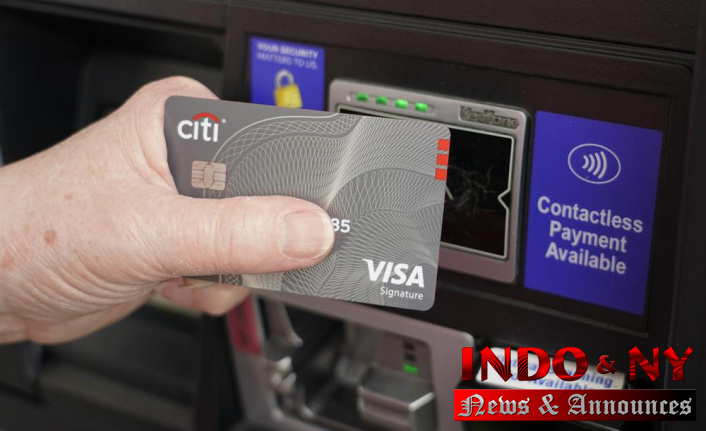Last year's record-breaking low mortgage rates of 3% are gone. The costs of auto loans and credit card interest rates will likely rise. Savers might see better returns depending on the bank they use, but long-term bonds funds returns will likely be lower.
The Fed's Wednesday quarter-point rate increase in its benchmark short term rate will not have an immediate impact on the finances of most Americans. Economists and investors anticipate the Fed to increase its rate of hikes at the fastest pace since 2005, despite inflation reaching four-decade highs. This would lead to higher borrowing rates for the future.
The Fed's policymakers signaled Wednesday that they anticipate raising their key rate by seven times this year. This would raise its benchmark rate to between 1.75 and 2.2% by the year's end. Their benchmark rate would be close to 3% if they had four more hikes in 2023 according to the officials.
Chair Jerome Powell believes that by gradually increasing the cost of borrowing, the Fed can cool demand for homes, cars, and other goods, and slow down inflation.
However, the risks are very high. The Fed might have to raise borrowing costs to keep inflation at the level it currently expects. This could lead to the U.S. economy going into recession.
Greg McBride chief financial analyst at Bankrate.com stated that a quarter-point increase in interest rates has no impact on household budget. But there can be a significant cumulative effect on both the household budget and the wider economy.
These are the questions and answers that will help you understand what rate increases could mean for your business and consumers.
___
I AM INTERESTED IN BUYING A HOME. WILL THE MORTGAGE RATE GO STEADILY HISER?
They have done so in the last few months partly because they were anticipating the Fed's moves and they will likely continue to do so.
However, mortgage rates do not always rise with Fed rate increases. Sometimes they move in the opposite direction. The rate of the 10-year Treasury note is an important factor in long-term mortgages. Investors' expectations of future inflation and the global demand for U.S. Treasurys are two examples.
Investors around the globe often react to global turmoil like Russia's invasion by fleeing to safety. Many people rush to purchase Treasurys, considered the safest asset in the world. A higher demand for the 10-year Treasury would reduce its yield, which would in turn lower mortgage rates.
However, the 10-year Treasury rate is currently rising due to faster inflation and stronger U.S. economic growth. According to Freddie Mac, the average rate for a 30-year mortgage has risen almost a full percentage to 3.85% since December.
HOW WILL THIS AFFECT THE HOUSING SALE MARKET?
It's likely that the shortage of houses available will continue to frustrate those who are looking to purchase a home. This has resulted in bidding wars and high prices.
Economists believe that buyers will be discouraged by higher mortgage rates. The average home price, which has been rising at around a 20% annual rate for the past few years, may rise at least slightly.
However, Odeta Kushi (Deputy Chief Economist at First American Financial Corporation) notes that there is so much demand for homes as the large millennial generation enters their prime years of home-buying that the housing market will not cool. The supply has not kept up. Many builders are facing shortages in parts and labor.
Kushi stated that "we'll still have an extremely robust housing market in his year."
HOW ABOUT OTHER KINDS LOANS?
Rates for credit cards, home equity loans, and variable-interest debt would increase by approximately the same amount as the Fed's hike. This usually happens within one to two billing cycles. These rates are partly based on the prime rate of banks, which moves in conjunction with the Fed.
People who aren't eligible for low-rate credit cards may end up paying more interest on their balances and their rates would rise with the prime rate.
If the Fed decides to increase rates by 10 percent or more in the next two year -- which is a real possibility -- it would greatly boost interest payments.
However, the Fed's rate increases won't necessarily cause an increase in auto loan rates. The rate of increase can be slowed down by the fact that car loans are more sensitive to competition.
WILL I BE ABLE to EARN MORE FROM MY SAVINGS?
It is possible, but not very likely. It all depends on where you keep your savings (if any).
The Fed's movements are not usually tracked by savings, certificates of deposits and money market accounts. Banks tend to profit from a higher rate environment in order to increase their profits. Banks do this by increasing rates for borrowers while not offering higher rates to savers.
This is especially true for large banks. Because of the government's financial aid and lower spending by wealthy Americans during the pandemic, they have been flooded with savings. They don't have to increase savings rates in order to attract more CD buyers or deposits.
Online banks and other high-yield savings accounts are likely to be the exception. These accounts are well-known for being aggressively competitive for depositors. They do require large deposits.
These mutual funds and exchange-traded funds will be more risky investments than those that hold long-term bonds. As newer bonds are issued with higher yields, long-term bonds lose their value.








